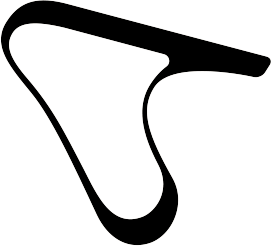The ZOZAN team organized artistic interventions based on the digitized selection of the material of Finke and Emir.
The artists and the respective results of the workshops covered a wide range of topics: individual memories (often characterized by violence and loss) and their connection to collective memories as shaped by silence and repression; the recent challenges in the Kurdish countries of origin that lead to migration, such as large dam projects; gender-specific violence; labor exploitation in the countries of residence, coupled with the invisibility of migrant communities; the impossibility of expressing oneself artistically; the loss of cultural heritage, the destruction of traditional knowledge and the absence of institutions to preserve both.
The artistic works ranged from the design of stamps for a nation without a state to the artistic processing of ethnographic photos, the sculptural reworking of everyday objects in stone, sound recordings of individual memories, videos, re-enactments of traditional practices such as butter-making, conceptual works, installations, literary adaptations, drawings and paintings. They were presented to the public in solo exhibitions after the workshops and finally as a complete show. A brochure with several pages was created for each workshop, which documents both the artistic presentation and the entire workshop and will finally be incorporated into a catalog at the end of the project.
Workshop 01
Lisl Ponger
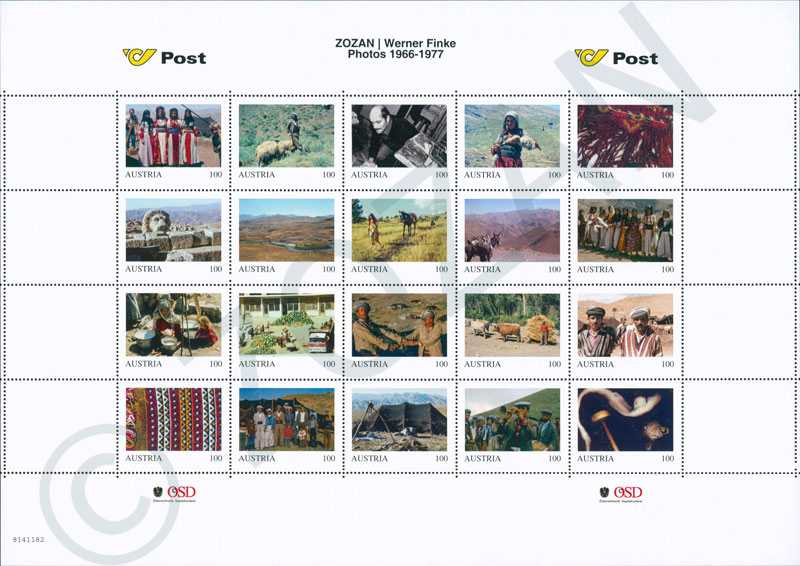
Workshop 02
Songül Boyraz
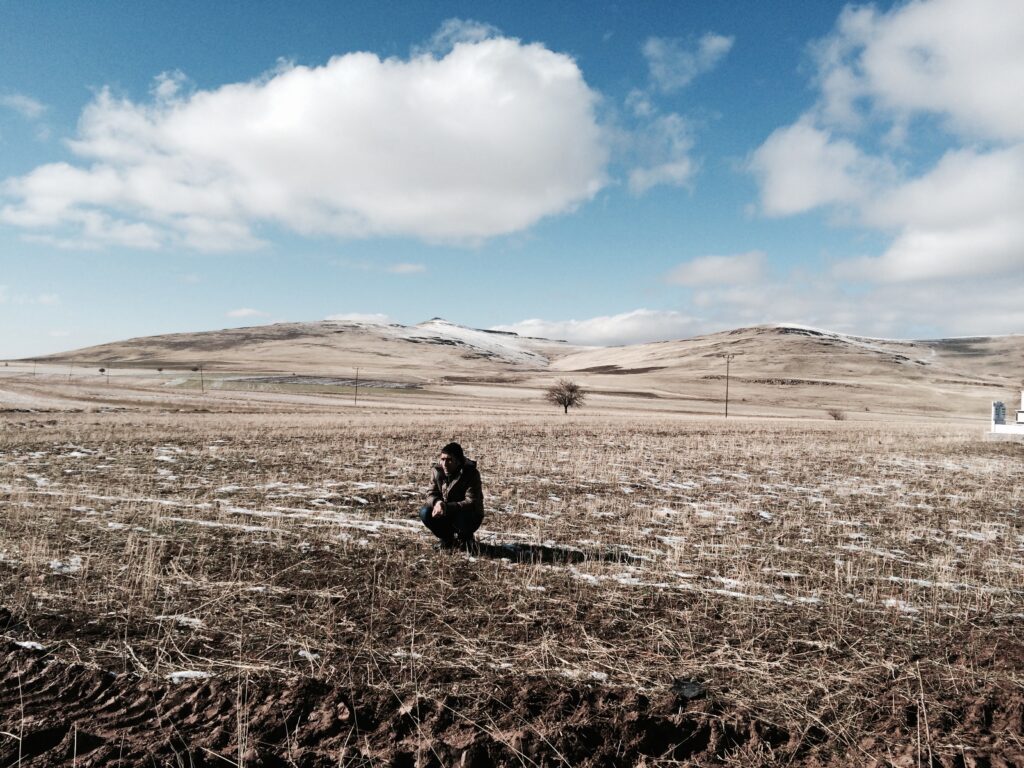
In the course of a one-week stay in Vorarlberg, Austria, in June 2022, Vienna-based artist Songül Boyraz developed a video work with members of local Kurdish communities. In conversations and music performances at several venues—vorarlberg museum, Open Youth & Cultural Work Bregenz, and Free Alevis Vorarlberg in Weiler—they discussed various topics, such as identity, being foreign, loss of homeland, and memory. The artist then conducted individual conversations and recorded these interviews on video. In the film, these conversations are interwoven with archival material from the Werner Finke and Mehmet Emir collections. Together with autobiographical material from her own family archive, Songül Boyraz created a 28-minute film entitled Remembering ZOZAN (“Memories of the Summer Pastures”).
The film was presented to the public in October 2023 at vorarlberg museum in Bregenz.
Workshop 03
Rojda Tuğrul
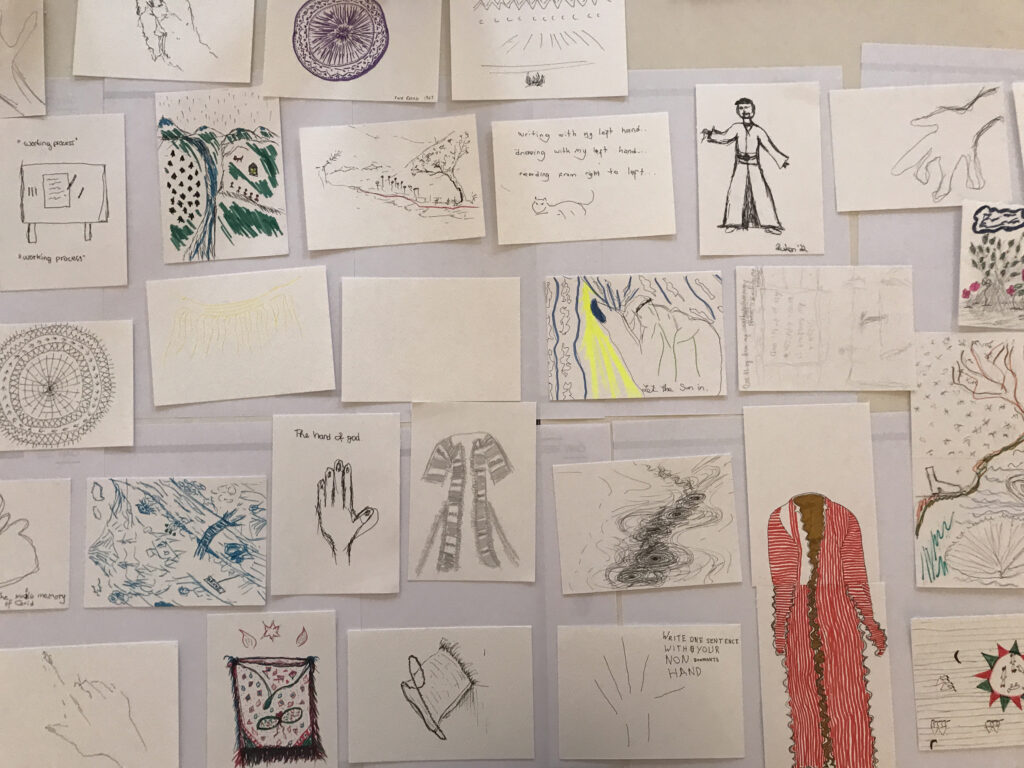
Workshop 04
Thomas Freiler
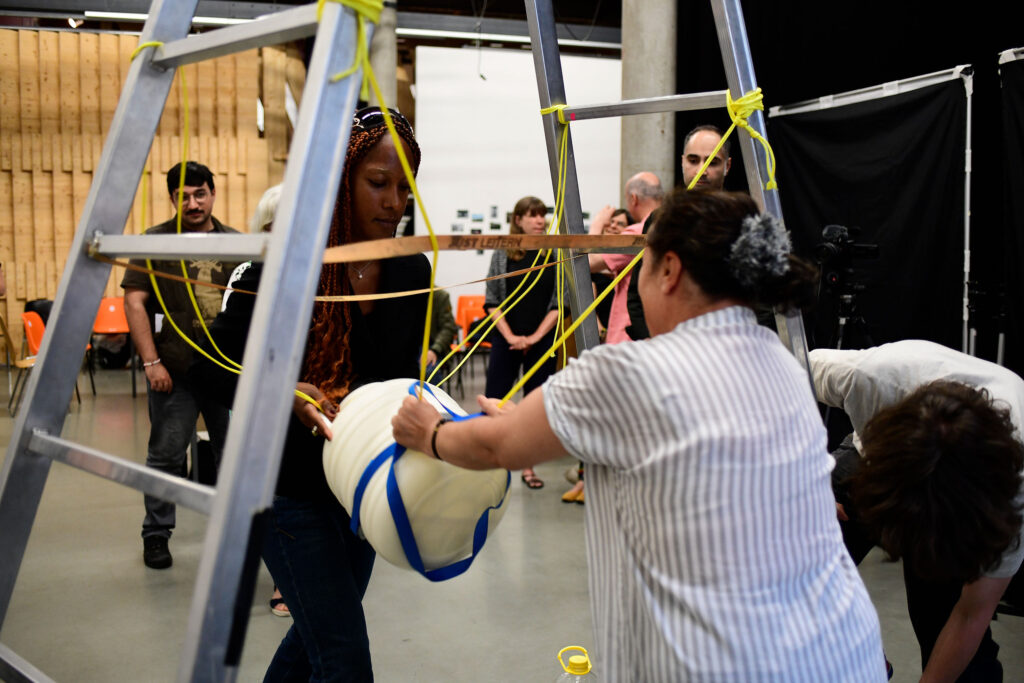
The fourth ZOZAN art intervention took place at the Academy of Fine Arts, Vienna as part of the methods seminar “Photography IV” under the direction of Thomas Freiler from early March to late June 2023. The students used multimedia collections to explore photography in the context of digitization and archiving, and discussed the importance of an ethnographic archive for the communities of concern. In addition to discussing scientific and artistic approaches, the seminar participants worked on artistic reflections of the collections: the basic idea was to conceive art projects based on the collection material and to implement them by the end of the term.
After a broad discursive discussion with the topic, the students engaged in individual artwork and collective art processes, which were also based on participation. Kurds and non-Kurds were presented parts of the collection and finally invited to participate in a collective re-enactment of a particular female household activity—churning butter. The participants’ own physical experience, the haptic approach to knowledge transfer, and a new multimedia documentation of this “butter workshop”—conducted at the Academy of Fine Arts under the guidance of Zeynep Kaplan—reflected the extensive range of what is possible in an art-based approach with regard to memory, experience, tradition, and the social sphere. The individual works followed different sociological and artistic approaches.
The Buttermaking-Workshop took place on June 17th, 2023 at the Academy of Fine Arts in Vienna.
Workshop 05
Savaş Boyraz
&
Duygu Örs
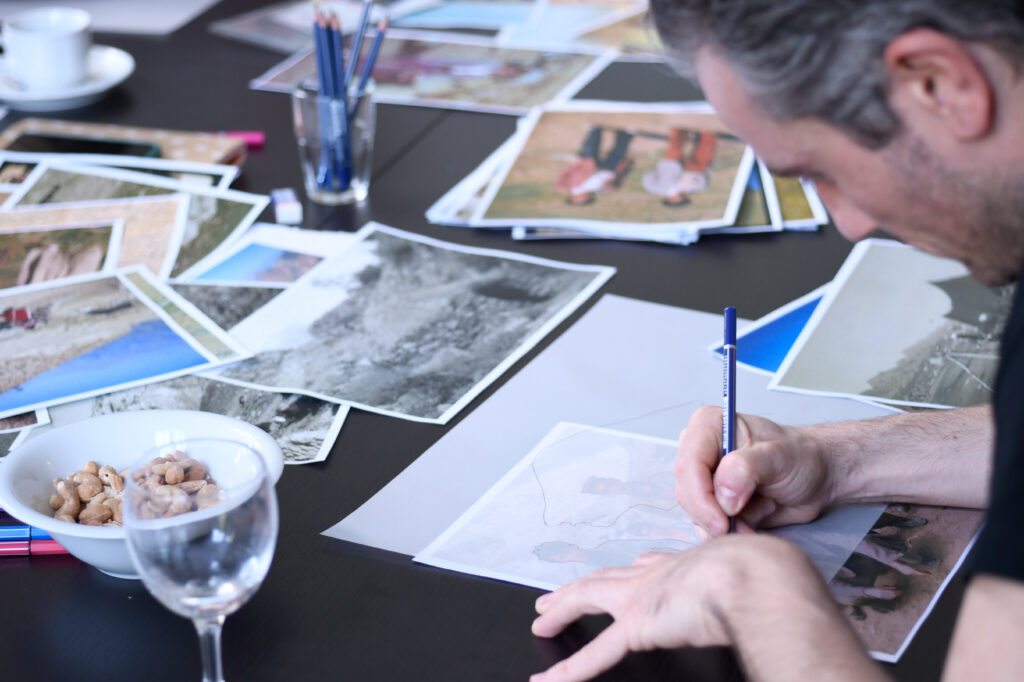
The fifth art-based ZOZAN workshop took place under the direction of the artist Savaş Boyraz and the curator Duygu Örs at the “Museum am Rothenbaum – World Cultures and Arts” (in short: MARKK) in June 2023. The leaders of the workshop focused on the meaning of archives and museum collections, and reflected about already existing and imagined archives as well as archives as they might be created in the future. They pursued the following questions: How do we, as migrant dwellers of modern European cities, relate to images of our distant and near past? How should we find our way in a (now or perhaps future) foreign land? What kind of knowledge repertoires do we draw on?
The starting point of the workshop was the intriguing combination of two multimedia collections on Kurdish pastoral life by Werner Finke and Mehmet Emir as well as ethnographic artifacts from the MARKK collection. The participants analyzed selected contents from the multimedia collections and discussed them in a broader socio-political meaning. They shared parts of their own private archives (photos, objects) and explained their individual meanings. In a next step, the artist and the curator encouraged participants to contribute to collective artworks mainly by using drawing techniques.
In the exhibition “ZOZAN Tracing Spaces” at the MARKK’s experimental space “Zwischenraum” materials and outcomes of this encounter are arranged in a construction that traces Kurdish tents. In a playful yet critical interaction with the given museal space, visitors are invited to engage in reflections on the politics of representation and subjectivity in an archival context.
The exhibition Zozan: tracing traces at Zwischenraum (MARKK Hamburg) was running from October 6th, 2023 to January 7th, 2024.
Workshop 06
Ezgi
Erol

In November 2023, the sixth ZOZAN art intervention took place at Schaumbad Freies Atelierhaus Graz under the direction of artist Ezgi Erol. The participants explored forms of memory and spaces of remembrance using the multimedia collections. Far beyond attempted interpretations and analyses of the photographic and film material, the participants exchanged their very personal memories of family biographies and relationships to Kurdish regions. In addition, commonalities in the effects of large-scale construction projects (dam projects) were highlighted and influences on nature and habitats were made visible.
The workshop also revealed the possibilities offered by an art-based approach. It was the creation of a common space, where memories could be exchanged and different forms of artistic expression could be tried out. A broad discursive discussion was followed by individual works, which were finally brought together to form a collective work and a joint presentation.
The resulting exhibition ZOZAN – T`RÄUME at Schaumbad Freies Atelierhaus Graz took place from January 20th to February 17th, 2024.
Workshop 07
Daro

Workshop 08
Melis
Kaya

The eighth arts-based ZOZAN workshop took place under the direction of curator Melis Kaya at the Kurdish Institute of Paris in March 2024. The workshop spoke to people interested in modern Kurdish history, visual anthropology, memory studies, and storytelling.
Related to the fact of “statelessness”, Kurds often witness only the path of “official” memory and historiography, and experience practices of silencing, denial, and the obligation of “disremembering”. Melis Kaya encouraged the participants to discuss their collective and personal memories, to explore (un)written Kurdish histories, and to document and re-establish their collective and personal memories, which have often been subjected to official historiography or governing powers. In order to find a form of representation of these often suppressed and untold memories, the group collectively explored the photographic collections of Werner Finke and Mehmet Emir, their personal archives, and the Kurdish Institute’s collection as well as multimedia materials, art production, literature, social sciences and journalistic archives.
The curator aimed to accomplish a new reading of history and memory, focusing on the facts upon which the participants constructed own memories and identities, apart from what they were taught, imposed or even exposed to.
In the course of the workshop, Adnan Dilovan Kegi, Aram Tastekin, Asmin Buhan, Dilan Salik und Meltem Yildiz produced three-dimensional memory boards, connecting Kurdish modern history and identity experiences, archival materials, the multimedia collections, and their personal memories.
The Institut Kurde de Paris opened a three-week-long exhibition on June 15th, 2024.

